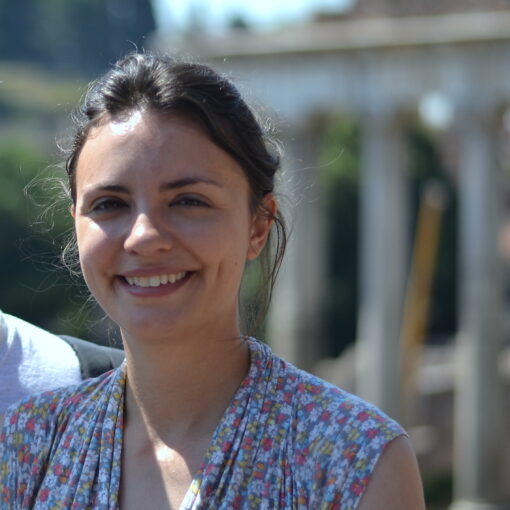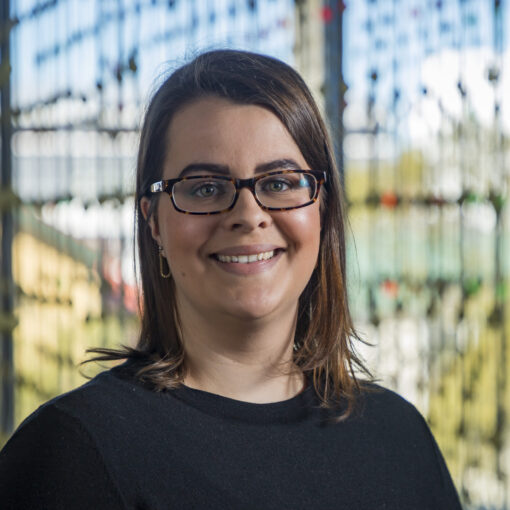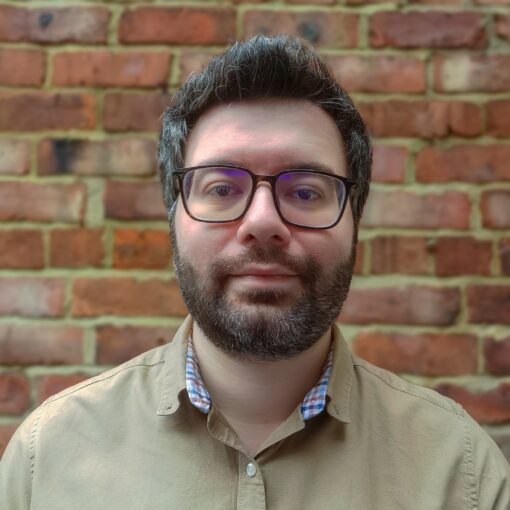PhD in Computational Chemistry, University of Southampton, 2020
| Senior Computational Chemist/ Developer | |
|---|---|
| MedChemica Ltd. | |
Year entered into a non-academic position: 2020
Job Highlight: My job involves researching and developing cheminformatics algorithms to aid drug design, as well as working on medicinal chemistry consultancy projects. I also help market our software products and train chemists to use them.
My research training set me up to…work independently to solve problems, and to present and communicate science effectively.
Left academia after: PhD
What’s your background
I obtained an integrated Master’s degree in Medicinal Chemistry from the University of Leeds in 2016. During my undergraduate training, I became interested in computational chemistry through the completion of an industrial placement year at MedChemica, where I learned about cheminformatics in drug discovery.
I went on to gain a PhD in Computational Chemistry from the University of Southampton, during which I had the opportunity to study at the Bioinformatics Institute, A*STAR, Singapore, partially funded through the A*STAR Research Attachment Programme (ARAP). My PhD involved using molecular dynamics simulations to investigate the mechanisms of cell-penetrating peptides.
Why did you move away from academia?
I wanted a career path that allowed me to put down roots by providing a permanent position and a steady income, while continuing to make an impact in drug discovery research.
Is there anything you miss about academia?
No.
How did you get this job? Did you face any challenges when considering a move away from academia or applying for the role?
I maintained contact with my industrial placement managers at MedChemica and was offered an interview towards the end of my PhD.
What motivated you to/why did you choose the sector you transitioned into?
Drug discovery is an interesting and rewarding field. My skills were better suited to computational work and I enjoyed developing research code in my PhD, so moving into cheminformatics software development allowed me to utilise these skills.
Did you think you had the skills required for your current position before you started? Were you right?
I thought I had the basic skills needed for the position but I knew I needed to develop them further. My position at MedChemica allowed me to develop my programming skills quickly because my first project required me to independently research and write a new cheminformatics tool for our software. I also believed I had the soft skills needed for this role (written and oral communication) but I developed them further within MedChemica by presenting at conferences, providing training to our software users, and writing blog posts.
How did your PhD prepare you for your current job? For example, what were the transferable skills that you developed during your PhD that are most relevant to your current job?
My PhD prepared me for my current job by teaching me how to solve technical problems independently. It also taught me how to work in a team and to communicate complex ideas.
Did you have any preconceptions about your sector that proved to be wrong?
No.
Can you describe a typical week in your job?
A typical week in my job could involve developing/ maintaining our software products, supporting our clients to use the software, and working in a team to design new products. We have a start-of-the-week team meeting where we set out our goals for the week and an end-of-the-week meeting where we discuss what went well and what could have gone better. We collaborate on software design and then assign tasks to individuals. We distribute client support between the team by working on a rota to monitor the health of our servers and reply to user requests.
What is the workplace culture like? Please include comments on work-life balance, flexibility, remote working?
The workplace culture at MedChemica is positive. We adopt a hybrid work model where I attend the office 3 three days a week and work from home 2two days a week. I am afforded a high level of flexibility and my managers trust that I will perform the tasks and work the hours necessary. I have a good work-life balance.
Do people with a PhD frequently get hired in the company/sector?
Yes
What are your favourite parts of your job?
I enjoy the diversity of my role. I enjoy working independently to write code but I also enjoy attending conferences, reading research papers and assisting our clients to use our products on their projects.
Do you have any advice for current graduate students and postdocs considering a career outside of academia?
Technical skills are important but it’s more important to have transferable skills, e.g. communication, problem-solving etc. A PhD will help you prepare develop these skills and you can pick up the technical skills required on the way.
What do you know now that you wish you’d known when exploring a transition?
It is possible to find a healthy work-life balance whilst still developing a career and pursuing scientific interests.
Can you recommend any relevant resources, organisations or events that might help somebody new to the sector find out more about it?
The Society of Chemical Industry (SCI) host events and workshops.
MedChemica is a UK based company that specialises in supplying knowledge-based design and analysis software to help our clients focus on making the best compounds quickly. The software – ‘MCPAIRS’ is a secure web-based analysis and compound design application that features a number of tools and is based on Matched Molecular Pair Analysis (MMPA) of measured data sets.
With over 50 years of drug development experience across all major target classes in 6 disease areas, both in Lead Generation and Lead Optimisation, as well as in method development – our goal is to accelerate the progress of our clients’ programmes.
We also offer consulting services in medicinal chemistry and cheminformatics, to help your projects large or small move faster and we have a proven track record of assisting clients develop candidate drugs that have progressed to clinical trials.
We have hired several PhD graduates who develop cheminformatic algorithms and work on drug development consultancy projects.
We have also hired undergraduate placement students and apprentices and continue to offer opportunities to a range of students.





